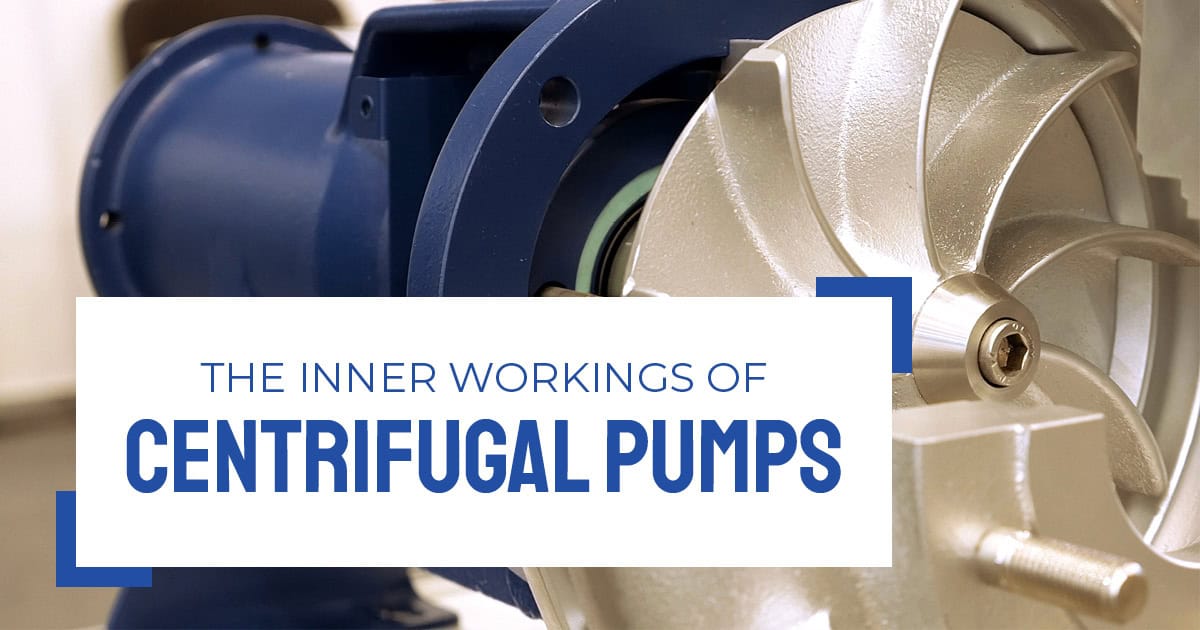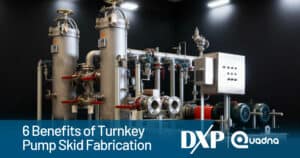The centrifugal pump is the most common pump type used in a range of industrial, municipal, and agricultural applications. These pumps are renowned for their efficiency in transferring fluids through the conversion of kinetic energy to hydrodynamic energy using centrifugal force.
How Centrifugal Pumps Operate
The operation of a centrifugal pump begins with fluid intake. The process fluid enters the pump through an inlet nozzle and is directed toward the impeller. As the impeller rotates, kinetic energy is imparted to the fluid, and it is accelerated radially outward. The fluid then enters the volute casing or diffuser, where its velocity decreases. Ultimately, this kinetic energy is converted into pressure energy that allows the fluid to flow through the system efficiently.
Types of Centrifugal Pumps
Centrifugal pumps come in various configurations to meet the demands of specific fluid transfer applications:
- Axial and Mixed Flow Pumps—Ideal for applications requiring high flow rates with moderate pressure.
- Radial Flow Pumps—Commonly used for higher pressure applications.
- Single-Stage Pumps—Suited for lower pressure applications.
- Multistage Pumps—Better for high-pressure scenarios.
- Vertical Turbine and Sump Pumps—Often employed in applications involving deep wells or sump conditions.
- Submersible Pumps—Designed to operate while submerged in fluid. Used commonly for dewatering and sewage applications.
Key Components of Centrifugal Pumps
To understand how centrifugal pumps function, it’s important to recognize their key mechanical components. Here are some of the most important parts:
Impeller
The impeller is a rotating component that directly interacts with the fluid. Its blades or vanes accelerate the fluid, transforming kinetic energy from the rotational motion into fluid velocity.
Casing (Volute or Diffuser)
The casing surrounds the impeller and captures the high-velocity fluid, gradually slowing it down to increase its pressure. This conversion from velocity to pressure is critical for centrifugal pump performance.
Shaft and Shaft Sleeves
The shaft transmits mechanical energy from the motor or engine to the impeller. Shaft sleeves protect the shaft from wear due to fluid and seal interactions.
Bearings
Bearings support the rotating shaft, reducing friction and maintaining alignment to ensure smooth operation. Different types of bearings can be used based on the application.
Mechanical Seals
Seals prevent fluid leakage along the shaft. Mechanical seals are preferred in many applications because of their reliability and efficiency in preventing leaks. Other sealing solutions like packing may be preferred for certain pump equipment and applications.
Applications of Centrifugal Pumps
Centrifugal pumps are extremely versatile. They are used in many disparate industries and adaptable for a variety of processing applications. Here are some of the most common markets using centrifugal pumps:
- Water Supply and Treatment
- Chemical Processing
- Oil and Gas
- Food and Beverage Industry
- Fire Protection Systems
ANSI vs. API Standards
Centrifugal pumps adhere to different standards based on their application. American National Standards Institute (ANSI) pumps are typically single-stage pumps known for their efficiency and low maintenance, making them ideal for chemical industry applications. On the other hand, American Petroleum Institute (API) pumps meet stringent specifications designed for high-pressure and high-temperature environments. Examples include conditions typically encountered in the oil and gas sector. These standards ensure the pumps perform reliably under the demanding conditions specific to their respective industries.
Centrifugal Pumps from DXP Quadna
To learn more about centrifugal pumps and to find the best pumps for your specific application and operating environment, contact DXP Quadna today. We have partnerships with the leading centrifugal pump manufacturers throughout the world. We can also provide packaged and custom solutions to meet your unique processing needs.





